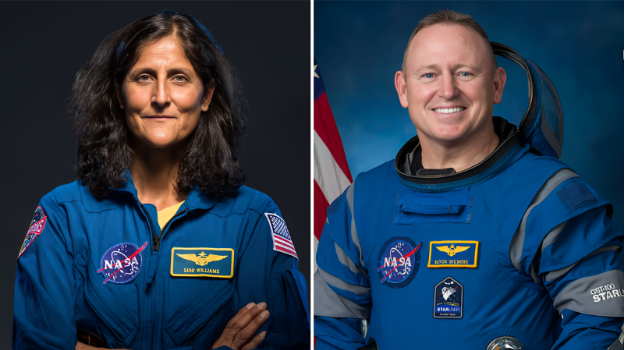By Darshini Dayanidhi
US astronauts Butch Wilmore and Suni Williams took off for the International Space Station in June. The test flight aboard Boeing’s Starliner was supposed to last a week, but the pair have yet to return. NASA has announced that they have discovered helium leaks and issues with the control thrusters of the spacecraft, making a safe return to Earth impossible. The astronauts are expected to return to Earth with the crew of an upcoming SpaceX mission, which means they will not be back until February 2025.
Although a majority of individuals are concerned that such a short excursion developed into an unexpected months-long voyage, astronauts are used to deviations of this nature. According to Jacqueline McCleary, a cosmology expert and assistant professor of physics at Northeastern University, Wilmore and Williams would have certainly planned for a longer stay considering the perils of space exploration. The International Space Station has supplies designed specifically for circumstances like these. The astronauts selected are also former test pilots and military veterans who are “physiologically and psychologically ready” to be locked up in space.
The pair’s original return date to the US was precisely five months before the 2024 presidential election. The two veteran astronauts will now be floating more than 200 miles (322 kilometers) above their nearest polling place on Election Day in November. Predicting something of this nature might happen in the fickle, unpredictable world of space exploration, NASA already had a contingency plan for this exact scenario. Thanks to a special Texas law that allows astronauts to be able to vote from space in the event of their absence with an ongoing presidential election, Wilmore and Williams will still be able to perform their civic duty. “It’s a very important duty that we have as citizens, and I’m looking forward to being able to vote from space, which is pretty cool,” Williams told reporters during a September 13 news conference from the space station.
Astronauts have had this right ever since 1997, when the Texas Legislature enacted a measure that expanded the Texas Election Code. The first-ever American NASA astronaut to “vote while you float” was David Wolf during his four-month mission aboard Russia’s Mir Space Station.
Ballots cast in space are transferred to Earth in the same manner that most data is carried between the space station and mission control: via NASA’s Near Space Network, a constellation of satellites in orbit that interact with antennas on our planet. Supposedly, an encrypted Word document will be sent up to the astronauts’ email addresses, and they can then open the document with their password. After Wilmore and Williams fill out their electronic absentee ballots, the forms “will be encrypted and uploaded into the space station’s on-board computer system,” according to NASA. Following that, the votes will be sent by a tracking and data relay satellite to a ground antenna at the NASA White Sands Test Facility in Las Cruces, New Mexico. The ballot will then be sent to Mission Control in Houston before being delivered to the county clerk in charge of ballot processing.
Wilmore and Williams’ quest demonstrates exactly how far we have come as mankind. These feats, spanning from space exploration to voting from orbit, demonstrate humanity’s perseverance and resourcefulness. It’s a time to celebrate our accomplishments and how technology connects us, even from 200 miles above our planet’s surface.

